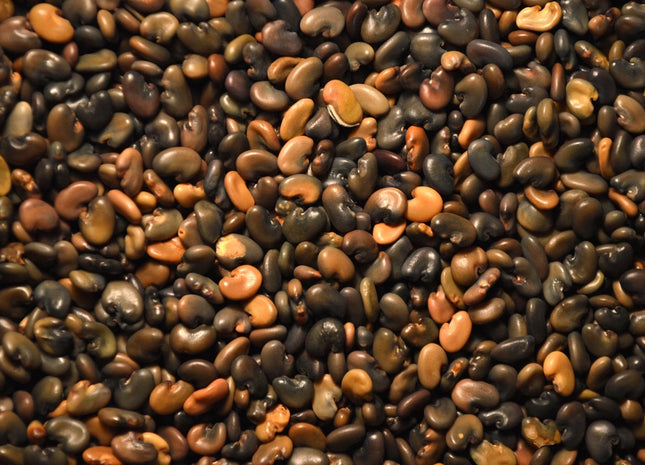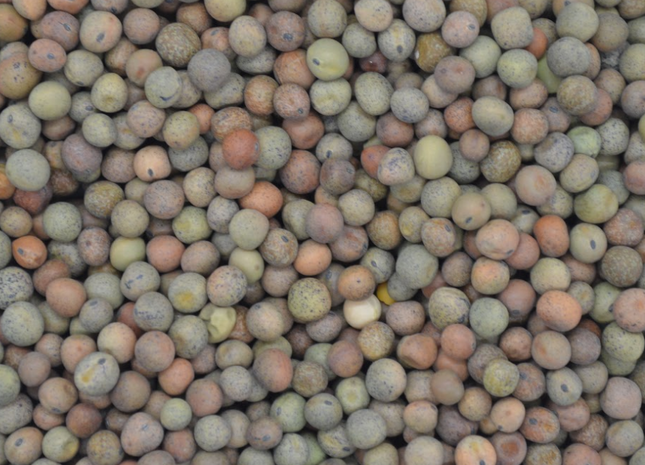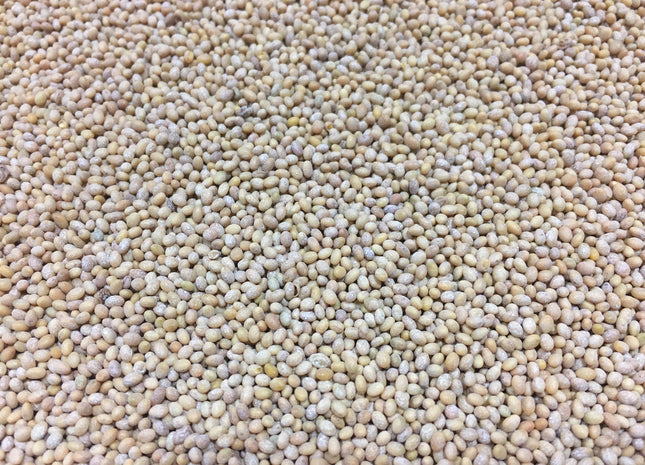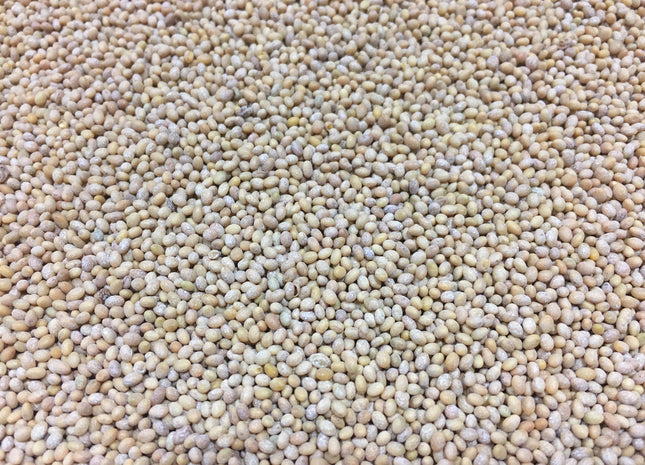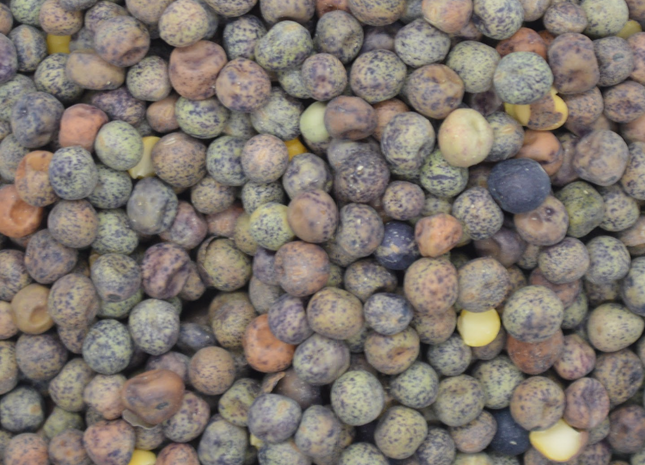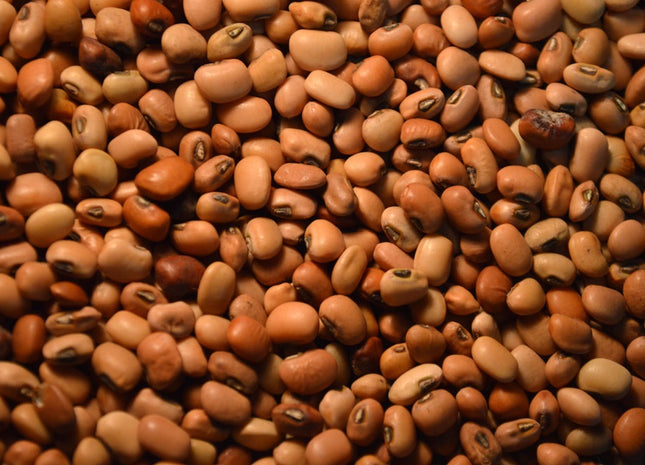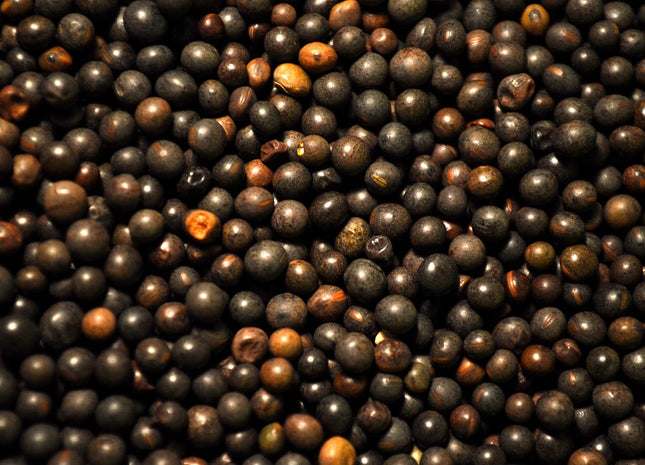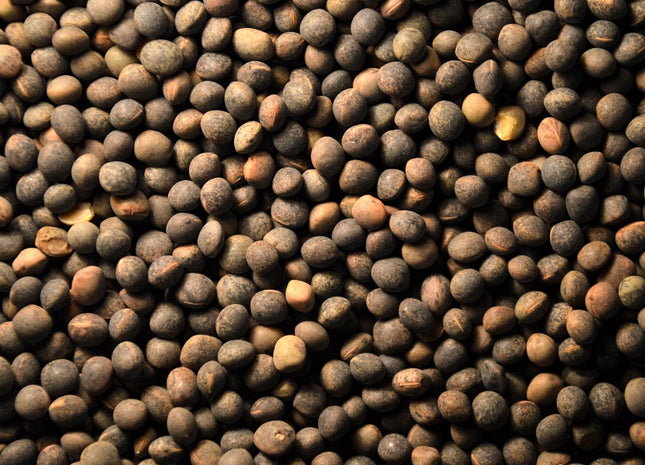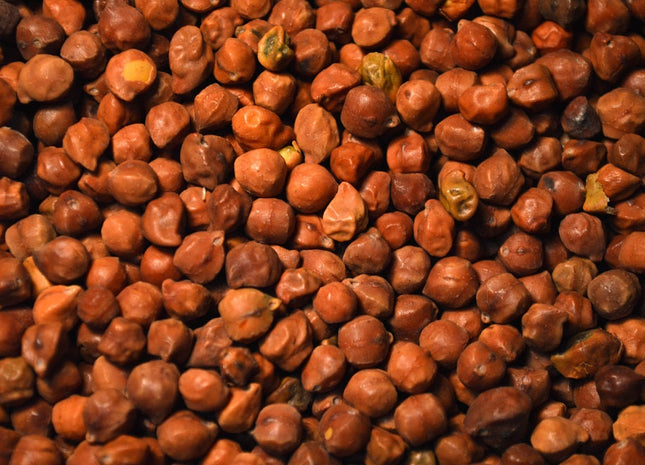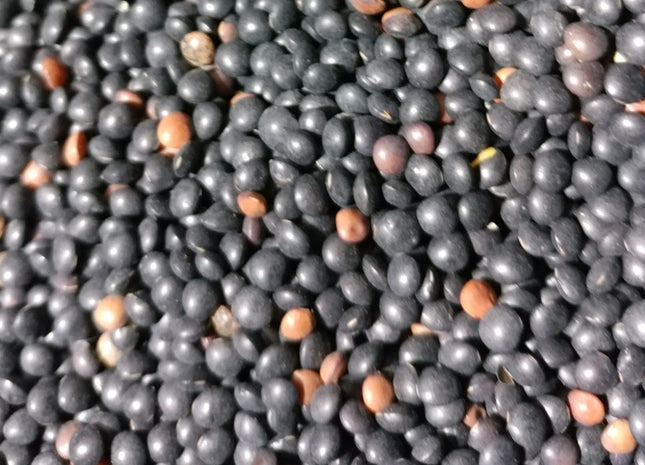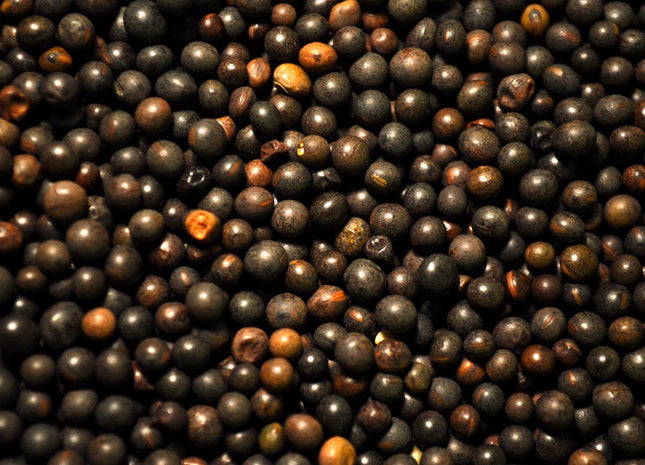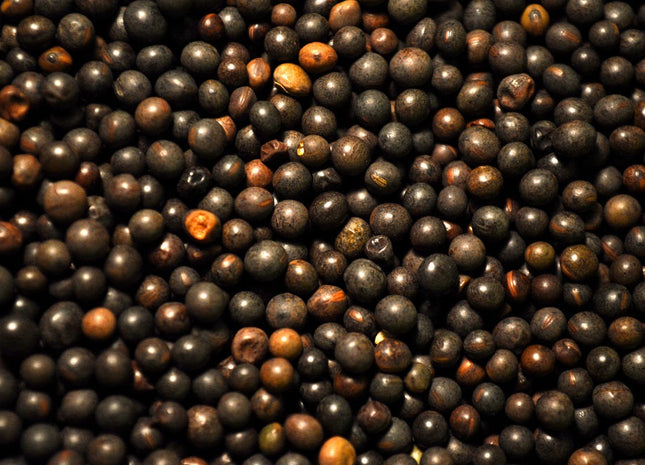Legumes

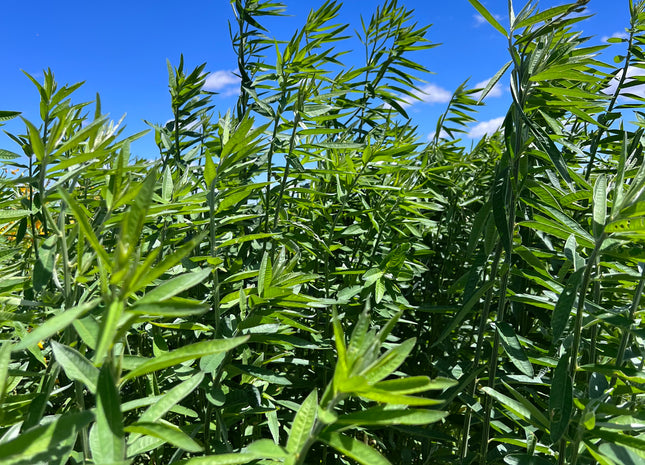
Sunn Hemp
Sunn hemp is an erect, tall growing warm-season legume with an anchoring tap root. Sunn hemp is a tropical plant so it thrives in the heat. It's deep taproot helps it access water and nutrients deep in the soil profile and works with bacteria to fix nitrogen. The leaves are high in protein for grazing and especially popular with small ruminants like sheep, goats, and deer, but cattle will also eat the leaves. It's long growing season also makes it a great addition to grazing mixes. Due to toxicity concerns we do NOT recommend grazing sunn hemp as a monoculture. The stalk is very lignified making this a poor species to use in a hay mix.
from $2.00 per lb

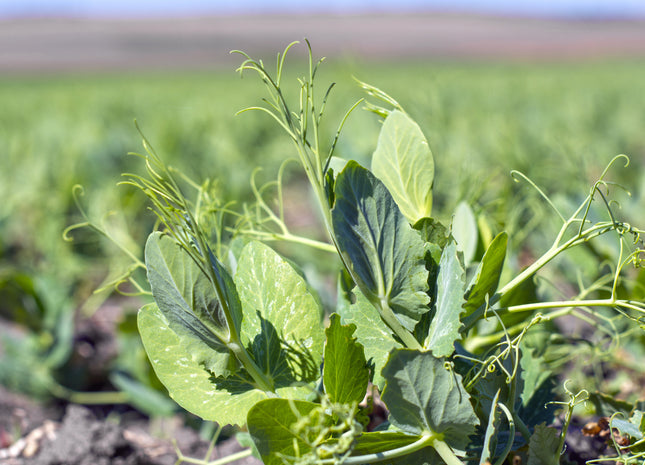
Winter Peas (Austrian)
Austrian winter peas are good companions to fall mixes, especially when combined with hairy vetch. If planted in early fall, there can be good growth for fall grazing as a protein source in the mix and they will grow much later into the fall than spring peas. In order to maximize winter survival chances, winter peas need to be planted relatively late (about the middle of wheat planting season) and deep, up to 3 inches. These conditions will help protect the growing point of the pea and assists in survival in colder climates.
from $0.80 per lb

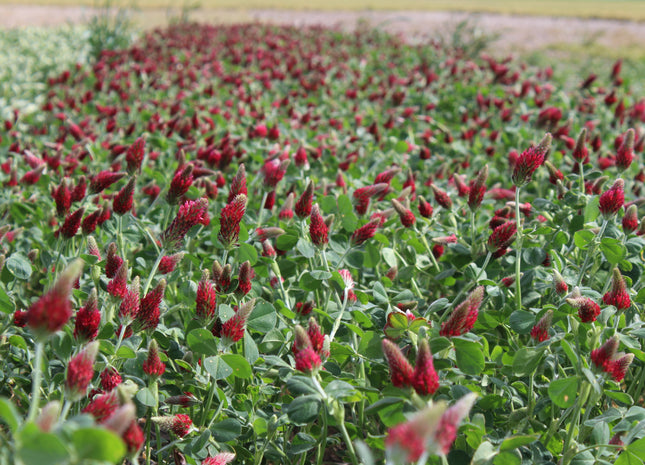
Crimson Clover (Dixie) - OMRI Inoculated
Crimson clover is one of the fastest growing, fastest establishing clovers. Known for its beautiful, deep red, cone shaped bloom, crimson clover is one of the most aesthetically pleasing cover crops and a popular choice for pollinator insects. For a more cold tolerant and higher biomass version, consider Kentucky Pride crimson clover.
from $1.26 per lb

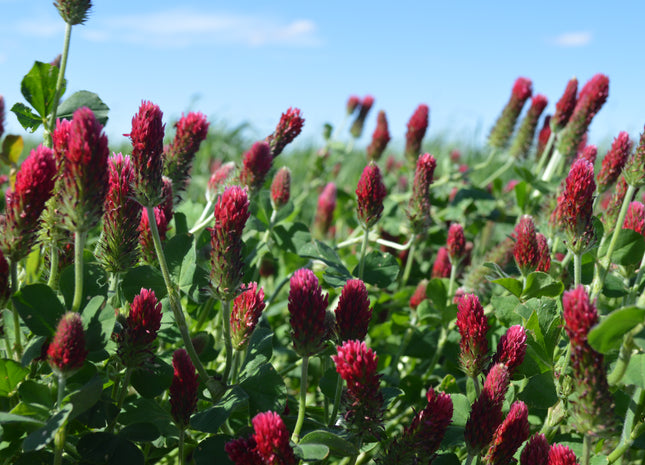
Crimson Clover (Kentucky Pride) - OMRI Inoculated
Kentucky Pride is an improved variety of crimson clover selected for more cold tolerance and more production (taller, deeper roots, more basal leaves and more tillering) than varieties like Dixie. Kentucky Pride crimson clover is a very fast establishing clover.
from $1.36 per lb

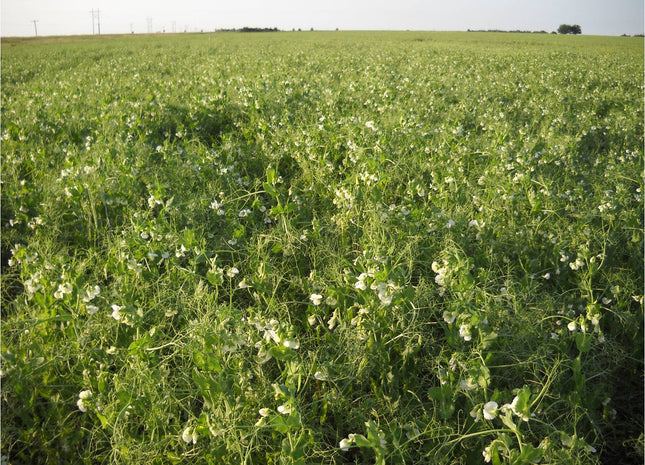
Spring Forage Pea (4010 Non-GMO)
Spring peas are one of the fastest growing spring legumes. Planted in spring after the harshest winter cold has passed, spring peas will tolerate some light freezing. Peas are commonly planted with oats as a high quality spring feed either for hay or grazing, or even a green manure. Peas work well in a mix as they will climb other plants to access sunlight. These legumes will also contribute to nitrogen fixing.
from $0.55 per lb

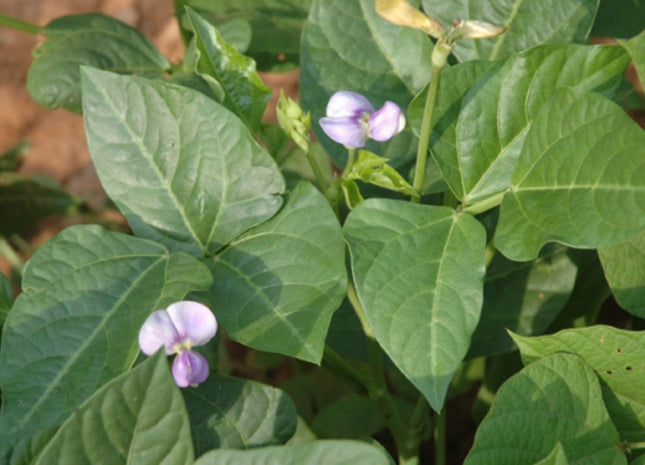
Cowpeas (Iron & Clay)
Cowpeas are one of the most popular warm season legumes. They love the heat, they tolerate drought, and they offer nitrogen fixation in a soil building mix, or higher protein in an annual grazing mix. The Iron & Clay have a long maturity which means when they are planted at the beginning of summer, they can achieve a lot of growth before temperatures cool down into fall. These cowpeas are also very viny so they will climb on other plants if planted in a mix.
from $1.21 per lb

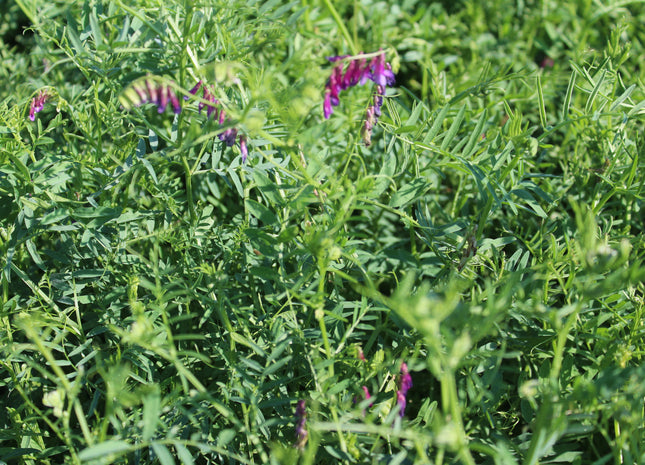
Hairy Vetch (Winter Warrior)
Hairy vetch is the most cold tolerant winter annual legume. Tolerating temperatures as low as -30 degrees, this is best planted before the first frost in the fall and then it will resume growth in the spring. Winter Warrior in particular is extremely cold tolerant because the seed is grown in places like Canada, Montana and South Dakota where it needs to survive some of the harshest winters. This variety is also facultative meaning it can be planted in the spring and grow to full maturity without having to go through a winter vernalization period. Hairy vetch is slower to green up and has slower spring growth compared to cereal rye and wheat but once it does get going, it grows very fast, doubling it’s growth each week through the month of May. With patience and a delayed corn planting, a full stand of vetch can consistently produce over 200 lbs of nitrogen in its biomass. As part of a winter cover crop or forage mix, vetch is commonly grown with rye or triticale.
from $2.54 per lb

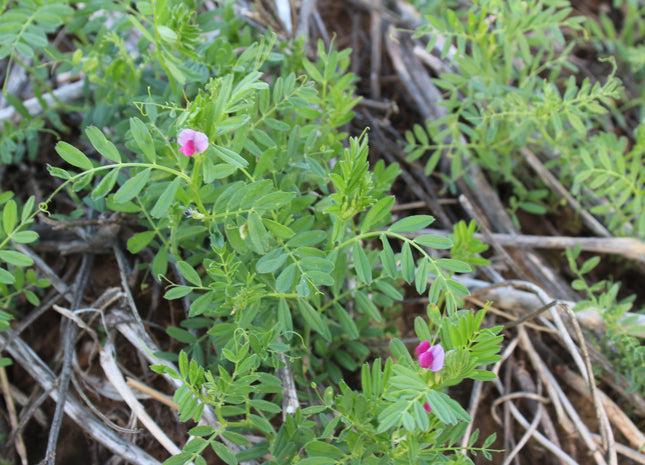
Common Vetch
Common vetch is a valuable cover crop widely used in the industry. As a leguminous plant, it provides nitrogen fixation, improving soil fertility. The extensive root system prevents erosion and helps control weeds. It enhances soil quality by adding organic matter, supports crop rotation systems, and provides early-season ground cover. Additionally, it can serve as a habitat for wildlife and, in some cases, offer forage for livestock. Common vetch's cold tolerance makes it suitable for various climates, but it is not nearly as cold tolerant as hairy vetch.
from $1.75 per lb

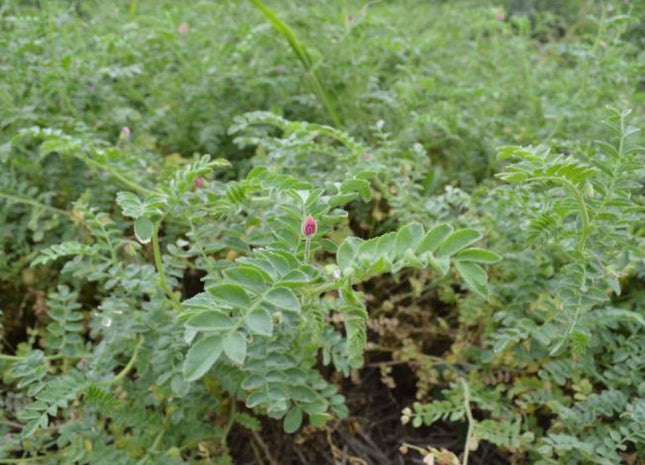
Chickpeas (Desi)
As the most heat tolerant of the cool season legumes, chickpeas offer a versatility that can be used in both warm and cool season mixes. Though not a great biomass producer, chickpeas are very drought tolerant and can help cover the ground in the midst of a summer drought. This taprooted plant can be used with grasses to add diversity and help break up compaction. As a legume, chickpeas will also fix nitrogen into the soil. Desi chickpeas have a smaller seed size so they blend well in a cover crop mix.
from $0.80 per lb

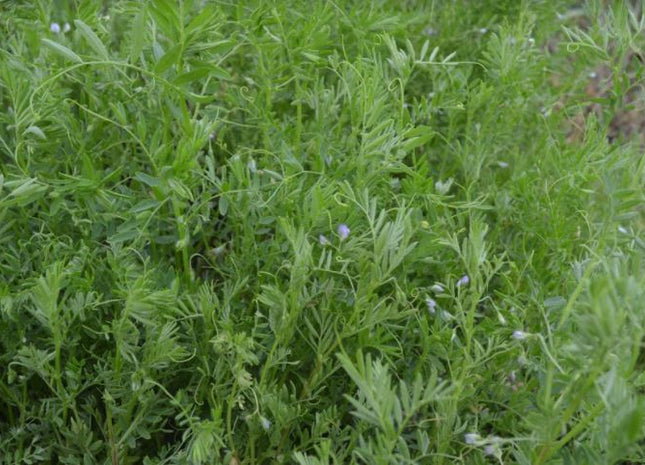
Spring Lentil (Crimson)
Lentils thrive in cool, dry conditions where they can remain relatively free of disease, hence they are commonly grown in the northern Great Plains. With a shallow rooting structure that doesn't have the ability to reach subsoil moisture, lentils are a great option in front of cereals or deep rooting crops. If excessive moisture is present during the growing season it will delay plant maturity. This will be excellent for producers who want to plant a summer fallow mixture where the mix can continue to grow under ideal conditions. Lentils are known for their ability to emerge through thick cereal stubble due to their strong seedling vigor. With rapid seed germination, seedlings generally out grow the threat of insects or disease pressure during establishment. Lentils can also house mycorrhizal fungi. Mature lentil straw can be an option for feed as it is much higher in crude protein, digestibility and palatability when compared to cereal straws.
from $1.90 per lb

Hairy Vetch (MT)
Hairy vetch is one of the most winter hardy legumes. Being more winter hardy than common vetch, hairy vetch has the potential to withstand temperatures as low as -20F. This species is known to have a great rooting system, with a tap root that will extend 1 to 3 feet into the soil profile. This taproot will allow the vetch to thrive even in dry conditions. When hairy vetch is placed into a mix, it can help bring the C:N ratio of the mixture down. This reduces the risk of nitrogen immobilization for the next crop.
from $2.54 per lb

Organic Hairy Vetch VNS
Call for Availability This product is certified organic. Please note: this product has 5% cereal rye contamination. Hairy vetch is one of the most winter hardy legumes. Being more winter hardy than common vetch, hairy vetch has the potential to withstand temperatures in excess of 5F with no cover. This species is known to have a great rooting system, with a tap root that will extend 1 to 3 feet into the soil profile. This taproot will allow the vetch to thrive even in dry conditions. When hairy vetch is placed into a mix, it can help bring the C:N ratio of the mixture down. This reduces the risk of nitrogen immobilization for the next crop.
from $2.88 per lb
- Out of Stock


Organic Crimson Clover
Note: This product is certified organic. Crimson Clover is one of the fastest growing, fastest establishing clovers. Known for its beautiful, deep red, cone shaped bloom, crimson clover is one of the most aesthetically pleasing cover crops and a popular choice for pollinator insects.
from $3.10 per lb


Organic 4010 Spring Forage Pea
Note: This products is certified organic. Spring peas are one of the fastest growing spring legumes. Planted in spring after the harshest winter cold has passed, spring peas will tolerate some light freezing. Peas are commonly planted with oats as a high quality spring feed either for hay or grazing or even a green manure.
from $0.80 per lb
- Out of Stock


Organic Austrian Winter Peas
Note: This product is certified organic. Austrian winter peas are good companions to fall mixes, especially when combined with hairy vetch. If planted in early fall, there can be good growth for fall grazing as a protein source in the mix and they will grow much later into the fall than spring peas. In order to maximize winter survival chances, winter peas need to be planted relatively late (about the middle of wheat planting season) and deep, up to 3 inches. These conditions will help protect the growing point of the pea and assists in survival in colder climates.
from $1.00 per lb

